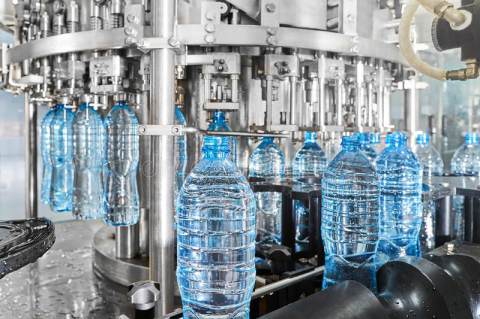Project Report For Bottling Plant
Introduction
Project Report for Bottling Plant is as follows.
A bottling factory is a specialised facility that packages beverages into bottles for distribution and sale, such as soft drinks, juices, water, alcoholic beverages, and other liquids. For many beverage firms, it is a key component of the manufacturing process. Raw materials and ingredients are received and examined at a bottling factory to guarantee their quality and conformity to certain requirements. Depending on the type of beverage being prepared, these elements may include water, concentrates, flavourings, sweeteners, carbonation, and preservatives. The factory is outfitted with a variety of technology and manufacturing lines designed to fill, seal, label, and package bottles in an efficient and sanitary manner.
In most cases, the bottling process consists of multiple phases. To eliminate any impurities or pollutants, the bottles are carefully cleaned and sanitised. The bottles are then filled with the beverage using automated filling equipment that precisely manages the amount of liquid in each bottle. The bottles are then sealed with caps, lids, or corks, depending on the kind of closure required. The sealed bottles can then be labelled with information such as the brand name, ingredients, nutritional values, and logos. Quality control is critical in bottling plant operations. Samples from the manufacturing line are taken on a regular basis to ensure that the beverages satisfy the needed criteria for flavour, appearance, and safety. To maintain consistency and fulfil regulatory criteria, quality control techniques include laboratory testing for pH levels, microbiological contamination, and other factors.
A bottling company bottles drinks for export. Many bottle firms are franchisees of corporations such as Coca-Cola and PepsiCo, who distribute the beverage in a certain geographic area. Other local drinks, such as regional beers or wines, may also be bottled by certain bottling firms.

Benefits of Bottling Plant
Efficiency: Bottling facilities are built to optimize manufacturing processes, resulting in fast filling, sealing, and packing. This efficiency enables businesses to fulfil market demand, boost output, and lower unit costs.
Quality Control: Bottling companies use stringent quality control procedures to guarantee that beverages fulfil predetermined requirements. These facilities assist in managing uniformity, flavour, and safety by examining raw ingredients and conducting laboratory testing on finished goods, therefore increasing consumer pleasure and loyalty.
Extended Shelf Life: Bottling factories frequently use specialised technology and methods to enhance the shelf life of beverages. This includes processes such as pasteurisation, aseptic filling, and the inclusion of preservatives. These procedures allow items to have a longer shelf life, decreasing waste and preserving customer freshness.
Product Variety: Bottling operations enable beverage firms to provide customers with a wide choice of product possibilities. With the capacity to handle numerous beverage kinds, flavours, and package sizes, these facilities enable businesses to respond to diverse client tastes and efficiently capture market niches.
Distribution and Scalability: Bottling plants offer efficient packaging and handling procedures, allowing items to be readily transported and disseminated to diverse areas. Whether for local, regional, or worldwide distribution, these facilities play an important role in ensuring that drinks reach consumers in a timely and cost-effective manner.
Get Completely Custom Bankable Project Report
Market Potential Of Bottling Plant
Expenses

Product Cost Breakup

Reveneue Vs Expenses

Market Trend

At a compound annual growth rate (CAGR) of 4.1%, the market for bottling plants worldwide is projected to increase from $4.77 billion in 2022 to $4.77 billion in 2023.
The market for bottling plants will grow due to the rising popularity of drinks. Health drinks are ones that provide more nutrition and are frequently made from fruits and vegetables. Both dairy and non-dairy variants are available. For general health, it is essential to consume healthy drinks. It is a potent antioxidant that can ward off a variety of illnesses, reduce the risk of cancer, strengthen immunity, enhance digestion, and even out skin tone.
For instance, Beverage Industry, an online e-magazine website, reported in December 2021 that customer demand for functional beverages with additional advantages has only increased throughout the epidemic. Between July 2020 and June 2021, consumer and business interest in immune-boosting ingredients and their inclusion in food and beverages increased by 51% and 24%, an Indian food and beverage advanced analytics company. As a result, the market for bottling line machinery is expanding due to the rising popularity of drinks.
